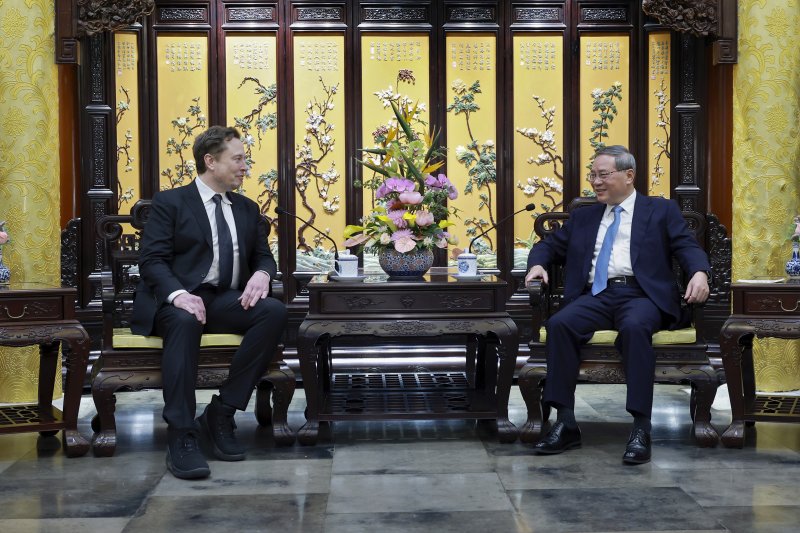Possible easing of strategic zone operational limits, including airports

Tesla has overcome a significant hurdle in commercializing its full self-driving (FSD) system in China. As a result, smart cars like Tesla, which have been restricted from driving and parking in strategic key areas in China such as public institutions and airports, are now free to operate without restrictions.
Chinese media outlets, including China Business News, reported on the evening of the 28th that “Tesla has become the first foreign company to pass the Chinese authorities’ data security inspection for smart cars (connected cars).”
Tesla Model 3 and Model Y both pass China’s data security inspection
The First Notification on Four Compliance Requirements for Automotive Data Security announced by the China Association of Automobile Manufacturers (CAAM) and the National Computer Network Emergency Response Technical Team/Coordination Center on the same day revealed that both the Model 3 and Model Y, produced at Tesla’s Shanghai Gigafactory, passed the inspection.
The companies that passed the Chinese authorities’ inspection include Tesla, BYD, Li Auto, Lotus, Hozon, and Nio, covering 76 models in total.
With this, Tesla can now theoretically introduce FSD software in China. Tesla launched its FSD software four years ago, but it has not yet been commercialized in China due to data regulations.
With the inspection clearance, negotiations related to the transfer of data collected in China to the U.S. by Tesla are accelerating, and they are known to have practically settled. Related data obtained during driving in China, such as terrain and geography, must be transferred to the U.S. for algorithm training necessary for autonomous driving technology.
Elon Musk, CEO of Tesla, who has been seeking approval for data export from Chinese authorities, hinted at ongoing discussions by responding to a question posted on X (formerly Twitter) in mid-month, saying, “Tesla may soon be able to allow Chinese customers to use FSD.”
Musk on X: “Chinese customers may be able to use FSD”
It is interpreted that Musk’s surprise visit to China on the 28th via a private plane to meet with Premier Li Qiang was for this discussion. Musk had canceled a visit and meeting with Indian Prime Minister Narendra Modi a week ago. This shows that the negotiations for the commercialization of FSD in China were more urgent, and discussions with the Indian Prime Minister about entering the emerging Indian market were even postponed.
Musk posted on X, “Because of Tesla’s heavy responsibilities, the visit to India had to be postponed, but I hope to be able to visit within the year.”
The Chinese authorities announced the passage of the inspection for Tesla Model 3 and Model Y on the same day that Musk’s surprise visit to China and his meeting with Premier Li took place, which is interpreted as both sides reaching an agreement on a series of current issues. In exchange for lifting restrictions on Tesla, Tesla promised to expand its investment in China.
Since 2021, Tesla has been storing all data collected in China locally following Chinese regulations and has not sent anything to the U.S.
Restrictions lifted on Tesla, expected to recover performance in the Chinese market and expand investment for a win-win with China
If Tesla commercializes FSD in China and lifts various driving restrictions, its sluggish sales performance is expected to recover quickly. Tesla is currently struggling amid price competition.
The Chinese Business Daily evaluated that “Tesla has established a certain foundation for promoting FSD in the Chinese market.” The newspaper reported that “Tesla announced that restrictions on the use of Tesla are being successively lifted in various places, including Shanghai.” Quoting an industry insider, Sina Corporation interpreted that “Tesla’s passing of the authoritative standards and requirements for national vehicle data security is favorable for completely lifting the driving and parking restrictions on smart cars like Tesla in public institutions, airports, highways, etc.”
The four requirements set by the Chinese authorities in this inspection are anonymization of information outside the vehicle, non-collection of cockpit data, in-vehicle processing of cockpit data, and notification of personal information processing.
Earlier, Reuters reported, citing sources, that CEO Musk was seeking to meet with high-ranking Chinese officials in Beijing to discuss the launch of FSD software in China. China Central TV (CCTV) reported that Musk visited Beijing on the afternoon of the 28th at the China Council for the Promotion of International Trade (CCPIT) invitation and met with Premier Li.
Li Qiang promises to provide a better business environment for Musk
During the meeting, Premier Li promised, “China’s large-scale market is always open to foreign companies, and China always does what it says. We will continue to work to expand market access and guarantee services, provide a better business environment for foreign companies, and ensure that companies from all countries can invest in China with confidence.”
CEO Musk responded, “The Tesla’s Shanghai Gigafactory is the most successful factory in Tesla, thanks to the diligence and wisdom of the Chinese team. Tesla is willing to deepen cooperation with China and achieve more mutually beneficial results,” according to CCTV.
So far, Tesla has sold more than 1.7 million vehicles in China, and the Shanghai factory is the company’s largest production base.


